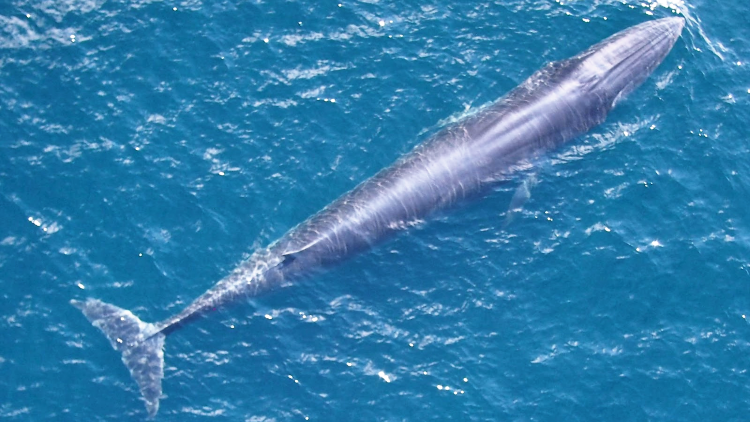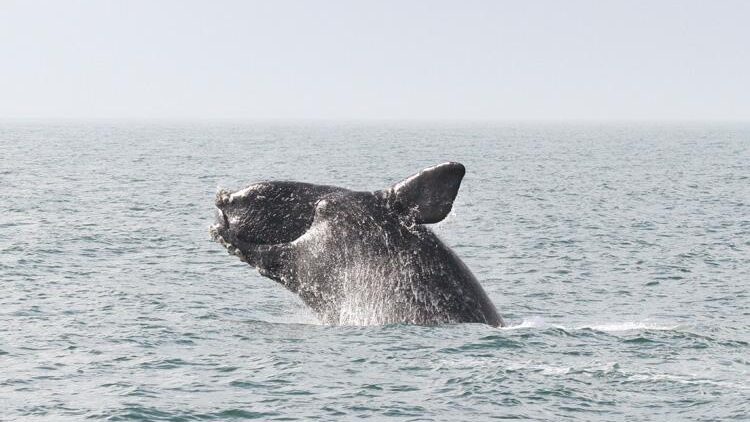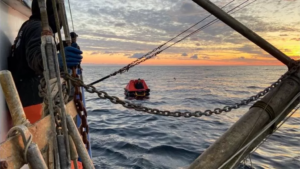NOAA denies petition to establish vessel speed limits in Gulf of Mexico

The National Oceanic and Atmospheric Administration (NOAA) has denied a petition to establish a mandatory speed limit and other vessel-related mitigation measures to protect the endangered Rice’s whale in the Gulf of Mexico.
According to NOAA, the decision — which was confirmed on Friday (27 October 2023) — was made based on various factors, including scientific assessments, the potential economic impact on commercial and recreational activities, and the effectiveness of existing conservation measures in the region.
Earlier this year, a petition was submitted to NOAA requesting the establishment of a 10-knot (11mph) mandatory speed limit and additional vessel-related mitigation measures to enhance the protection of Rice’s whale – a newly discovered species listed as endangered and known to inhabit the Gulf of Mexico.
With likely fewer than 100 individuals remaining, Rice’s whales are one of the most endangered whales in the world. Recovery of the species depends upon the protection of each remaining whale. The Rice’s whale has been consistently located in the northeastern Gulf of Mexico, along the continental shelf break between 100 and about 400 metres deep.
Several organisations representing the recreational fishing and boating communities, including the National Marine Manufacturers Association (NMMA), oppose the proposed speed limit, and had submitted comments urging NOAA to reject the petition citing a lack of data and science supporting such measures.
This decision has no direct bearing on proposed rules over speed limits to protect the critically endangered North Atlantic right whale (NARW) population.

However, NMMA says the ruling demonstrates NOAA is ‘heeding the concerns the recreational boating industry has raised over the last year in response to the NARW proposed rule and Gulf petition’. NMMA says it anticipates NOAA will release the final NARW rule by the end of the calendar year.
“We welcome this approach by NOAA, in which they listened to all stakeholders, including the recreational boating and fishing industries, and committed to using the latest science to inform their rulemaking,” says Frank Hugelmeyer, president and CEO of the National Marine Manufacturers Association.
“This rule would have had dire implications on Gulf Coast communities, similar to what the proposed North Atlantic Right Whale Vessel Strike Reduction rule will do to communities along the Eastern Seaboard. This harmful proposal would create one of the largest restrictions of Americans’ access to public waterways, put families at risk on the water, and have a devastating impact on economies up and down the Atlantic Coast.
“We will continue to engage NOAA and work with lawmakers on both sides of the aisle to find ways to protect the right whale that do not come at the expense of small businesses and American livelihoods.”
In October, campaign group Oceana, which advocates for NARW protection, released a report that showed most boats are speeding through slow zones designed to protect North Atlantic right whales.
Estimates from the North Atlantic Right Whale Consortium finds that the North Atlantic right whale population remains at risk of extinction, with only around 356 whales in 2022.
Oceana analysed boat speeds from November 2020 through July 2022 in slow zones established by NOAA along the US East Coast and found that 84 per cent of boats sped through mandatory slow zones, and 82 per cent of boats sped through voluntary slow zones.
Rick Scott, Florida’s US senator, has welcomed the NOAA’s decision over speed limits in the Gulf of Mexico.
“Today’s decision by NOAA comes after months of fighting to protect Florida and America’s national security from more burdensome regulation in Washington,” he says in a statement. “For months, I’ve been calling on NOAA to reject this proposed rule, which was not based upon scientific research substantiating the proposed restrictions, and find a better way to look after the Rice’s Whale.”
NMMA has worked alongside a coalition of recreational boating and fishing groups, including the American Sportfishing Association (ASA) and Center for Sportfishing Policy (CSP), in its attempts to have the petition denied.
Jeff Angers, president of CSP, adds: “The recreational fishing and boating community sounded the alarm when these misguided restrictions were first requested, and tens of thousands of us spoke up – loud and clear – in formal comments and outreach to Congress.
“Draconian vessel speed restrictions were never the answer to 21st-century conservation challenges. We have asked NOAA to work with experts from our industry in improving technology to help tell mariners where whales are instead of effectively barring public access to America’s marine waters.”
Main image: Rice’s whale, courtesy of NOAA Fisheries, via Wikimedia Commons.










